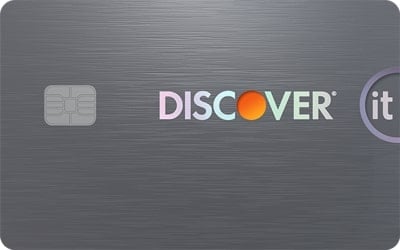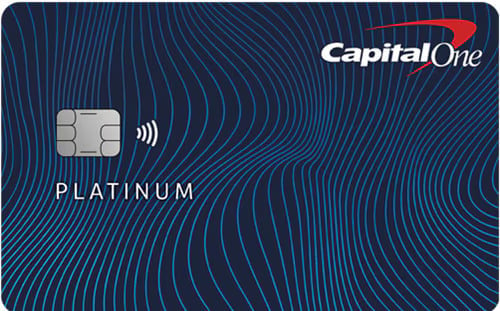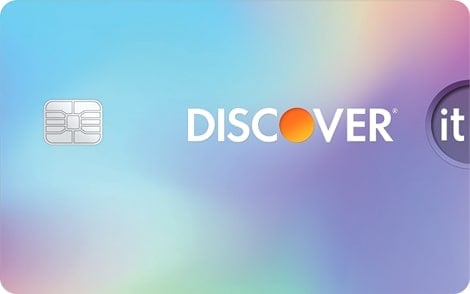Instant Approval Credit Cards May Not Offer What You Seek
Instant approval doesn't necessarily grant immediate access to a card, nor does it guarantee approval for all. Here's what to know and expect.

Many or all of the products on this page are from partners who compensate us when you click to or take an action on their website, but this does not influence our evaluations or ratings. Our opinions are our own.
Instant approval credit cards can mean different things to different people. Are you seeking:
- An instant answer upon applying? This is common among credit cards from major issuers. Often, if you apply for a credit card online, you can expect a yes or no within seconds.
- The ability to use your card instantly after approval? This is less common, but not unheard of. Some cards do issue temporary instant numbers that you can use until your physical card arrives.
- "Guaranteed approval," no matter your credit? Technically, there's no such thing. But some cards designed for those with bad credit or no credit do promise that they're "easy" to get — although they can be costly.
The point is, instant approval doesn't mean immediate card access, nor does it promise blanket approval for all applicants. Here's a closer look at the differences.

Instant approval vs. instant access vs. guaranteed approval
Trying to get approved for a card?
Create a NerdWallet account for insight on your credit score and personalized recommendations for the right card for you.

Instant approval credit cards
Instant approval credit cards are the norm these days. Major credit card issuers like American Express, Chase, Citi and more can give you a "yes" or "no" within seconds of receiving your online application and reviewing the data you included, like your Social Security number, income and contact information.
An instant answer isn't always a sure thing, though. Some applications — especially from applicants with bad, thin or no credit — may require a more thorough evaluation, meaning you may have to wait days or weeks to find out. But if you already have good to excellent credit (FICO scores of 690 or higher), you can generally expect a quick answer.
Assuming you're approved and notified that a card is being mailed to you, be aware that delivery times vary depending on the card issuer. Typically, you can expect a wait of a few days up to a few weeks. In the majority of cases, you won't be able to start making charges on your account until you receive the physical card in the mail.
But there are exceptions.
Instant access credit cards
You may not always have to wait for the physical plastic (or metal) to hit your mailbox. Once you're approved, some issuers do offer instant access to your credit line, often in the form of a temporary virtual card number, which you can use to make purchases until you receive the actual card.
Immediate credit access is not a given, but it's a trend that's been picking up steam recently. American Express offers the feature on all of its consumer cards, and it's also fairly common for co-branded credit cards — those offered in partnership with a retail store, airline or hotel — to allow immediate card use on in-brand purchases.
Major issuers and their policies on instant credit access:
American Express
An instant card number upon account approval is available on all American Express U.S. consumer credit and charge cards, including co-branded cards, according to the issuer. AmEx prepaid cards don't offer this feature, AmEx notes. Eligibility is based on American Express’ ability to instantly validate your identity. If you are eligible for an instant card number, you will receive one that you can use virtually anywhere AmEx is accepted, and a physical card will not be required. An instant card number is available only when you apply online through American Express via a desktop or mobile device, AmEx says. It's not available on applications made by phone.
Bank of America®
Eligible existing customers who open a new credit card through a targeted promotion via the issuer's mobile app can view and add their new card information to a digital wallet while they are waiting to receive the physical card in the mail, according to Bank of America®. This option is available only to those who already have at least one account with Bank of America®. Currently, this isn't an option if you apply through the app without clicking on one of the targeted promotions.
Barclays
The Miles & More® World Elite Mastercard® does not offer instant credit upon approval, according to Barclays. But the issuer notes that several of its other co-branded cards do offer instant credit under certain circumstances. A sampling:
· The Frontier Airlines World Mastercard® offers instant credit upon approval toward your Frontier purchase when you apply while booking a flight or other travel through the site.
· The Hawaiian Airlines® World Elite Mastercard® offers instant credit upon approval when you apply while booking a flight or other travel through the site.
· The Holland America Line Rewards Visa® Card offers instant credit upon approval when you apply while booking a cruise or when you apply onboard.
· The JetBlue Card offers instant credit upon approval toward your JetBlue purchase when you apply while booking a flight or vacation through the site.
· The NFL Extra Points Credit Card offers instant credit upon approval toward your purchase when you apply at NFLShop.com or PackersProShop.com.
· Priceline VIP Rewards™ Visa® Card offers instant credit upon approval toward your purchase when you apply while booking travel through the site.
· The Princess Cruises Rewards Visa® Card offers instant credit upon approval when you apply while booking a cruise or when you apply onboard.
· The Carnival World Mastercard offers instant credit upon approval when you apply while booking a cruise or when you apply onboard.
· The Diamond Resorts World Mastercard offers instant credit upon approval when you apply while visiting one of Diamond’s resorts.
· The RCI Elite Rewards Mastercard offers instant credit upon approval when you apply while visiting one the resorts in the RCI affiliate network.
· The Bluegreen Rewards Mastercard offers instant credit upon approval when you apply while visiting one of Bluegreen’s resorts.
· The Choice Privileges Visa Signature Card offers instant credit upon approval toward your purchase when you apply while booking travel through the site.
Capital One
Customers that already have a Capital One account can get instant access to cards after applying if they meet certain criteria and the issuer is able to sufficiently verify their identity, according to Capital One. Those who are eligible can only access their Capital One card information instantly through the Capital One app, the issuer notes.
Chase
Certain co-branded Chase cards can be used instantly, according to the issuer. Customers won't immediately receive the account number, but instead, Chase will supply it directly to the co-brand partner, Chase notes. According to the issuer, this feature is available on cards associated with the following brands:
· Amazon.
· British Airways.
· Disney.
· Marriott.
· Southwest Airlines.
· United Airlines.
· British Airways.
· Disney.
· Marriott.
· Southwest Airlines.
· United Airlines.
Citi
Citi did not provide information on the availability of instant credit on its cards. In general, it doesn't offer instant access to credit, but there are exceptions. For example, it's possible to get instant access to the Costco Anywhere Visa® Card by Citi. If you're approved right away, you'll get access to a temporary barcode linked to your account that can only be used for Costco purchases.
Discover
Discover does not offer instant card numbers upon approval for its credit cards, the issuer confirms.
Wells Fargo
Wells Fargo does not offer instant card numbers upon approval for its credit cards, the issuer confirms.
Guaranteed approval credit cards
Credit cards that guarantee approval don't really exist. U.S. federal law prohibits lenders from extending credit to someone unless they think the person has the ability to make payments. (Even if you're pre-qualified or preapproved for a credit card, it's more like a "soft" yes.)
But there are credit cards that advertise significantly lower barriers to approval. Many of them are from so-called subprime specialist lenders, companies that offer credit cards designed for those with bad credit (FICO scores of 629 or lower).
These cards can be easier to get — some may not require a credit check at all — but they often charge high fees, sometimes hundreds of dollars a year. Many of them lack upgrade paths to better products once your credit has improved, and some don’t even report payment activity to the U.S. credit bureaus. That defeats the purpose of getting such a card, which is to build your credit.
Other options to consider
Even if you have poor, thin or no credit, products from subprime specialist lenders aren't your only option. The following kinds of credit cards do not guarantee approval either — again, no card can — but they're likely to be less expensive to carry, while offering other benefits like credit reporting and/or upgrade paths when you're ready to move on:
1. Secured credit cards
Secured credit cards require a refundable cash deposit, which is usually equal to your credit limit. The deposit reduces the risk to the issuer; in the event you don't pay your bill, the card issuer will close the account and use the deposit to pay the outstanding charges.
You use a secured card just like any other credit card, making purchases and paying them off. If you make payments on time and keep your credit utilization low, the card can help you build good credit. And when you close the account or upgrade to a regular unsecured card from the same issuer, you get your deposit back.
Here are some of NerdWallet's top secured credit cards:
For rewards and upgrading:
Discover it® Secured Credit Card
The Discover it® Secured Credit Card has been a NerdWallet favorite because it offers rewards — a rare feature on secured credit cards. The card gives you 2% cash back on up to $1,000 worth of combined spending per quarter at restaurants and gas stations, and 1% back on all other spending. The card has a bonus offer: INTRO OFFER: Unlimited Cashback Match for all new cardmembers—only from Discover. Discover will automatically match all the cash back you’ve earned at the end of your first year! There’s no minimum spending or maximum rewards. It also offers a path to upgrade: After seven months, Discover begins reviewing your account to determine whether your account can be upgraded to an unsecured card. The annual fee is $0. The minimum deposit is $200; the maximum is $2,500. It doesn't require a credit score to apply.
For low deposit:
Capital One Platinum Secured Credit Card
The no-annual-fee Capital One Platinum Secured Credit Card allows some applicants to qualify for a $200 credit limit with a deposit of $49, $99 or $200. You can increase your limit to a maximum of $1,000 by depositing more money before activating the card. These deposits can also be made in installments. You could gain access to a higher credit limit with no additional deposit if you pay on time for as little as six months. Approval standards are tighter for this card than for some others. You must have a bank account, and your monthly income must be at least $425 more than your rent or mortgage payment.
For no credit check or bank account:
opensky® Secured Visa® Credit Card
The opensky® Secured Visa® Credit Card card doesn't require a credit check, and you can pay your bill with a debit card, wire transfer, money order or check. That's helpful if you don’t have a bank account. In addition, the card reports to all three credit bureaus. Two potential downsides, however: The card charges an annual fee of $35, and opensky doesn't have great options for upgrading. In the long term, it's an expensive and limiting option.
🤓 Nerdy Tip
Again, approval for secured credit cards is not guaranteed. You might still be declined if, for example, you don't have a source of income, you don't have a bank account, or you have an undischarged bankruptcy. 2. Student credit cards
You'll often need at least some existing credit to qualify for a student credit card, and in most cases you must also be an enrolled student.
But some student cards — like the Discover it® Student Cash Back and the Discover it® Student Chrome — don't have any kind of FICO history requirement for applicants.
Neither of these Discover products charges an annual fee or security deposit, and both earn rewards.
3. Store credit cards
Store credit cards generally have less stringent credit requirements, meaning they can be easier to get than other kinds of cards.
But you'll still usually need at least fair credit to qualify (FICO scores of at least 630), and you'll also likely encounter higher APRs and lower credit limits with these kinds of products. In addition, you may run into acceptance issues: Some store cards are "closed loop" products, meaning you can't use them for purchases outside of the brand.
If you become an authorized user of someone else's card account, you'll get your own credit card with your name on it — no credit check required.
That's because you're not opening an account; you're merely being added to a primary user's account (often a spouse or parent). Even though you'll be able to make charges with the card as an authorized user, the primary user is the one responsible for actually paying the bill.
Article sources
NerdWallet writers are subject matter authorities who use primary,
trustworthy sources to inform their work, including peer-reviewed
studies, government websites, academic research and interviews with
industry experts. All content is fact-checked for accuracy, timeliness
and relevance. You can learn more about NerdWallet's high
standards for journalism by reading our
editorial guidelines.
Find the right credit card for you.
Whether you want to pay less interest or earn more rewards, the right card's out there. Just answer a few questions and we'll narrow the search for you.











